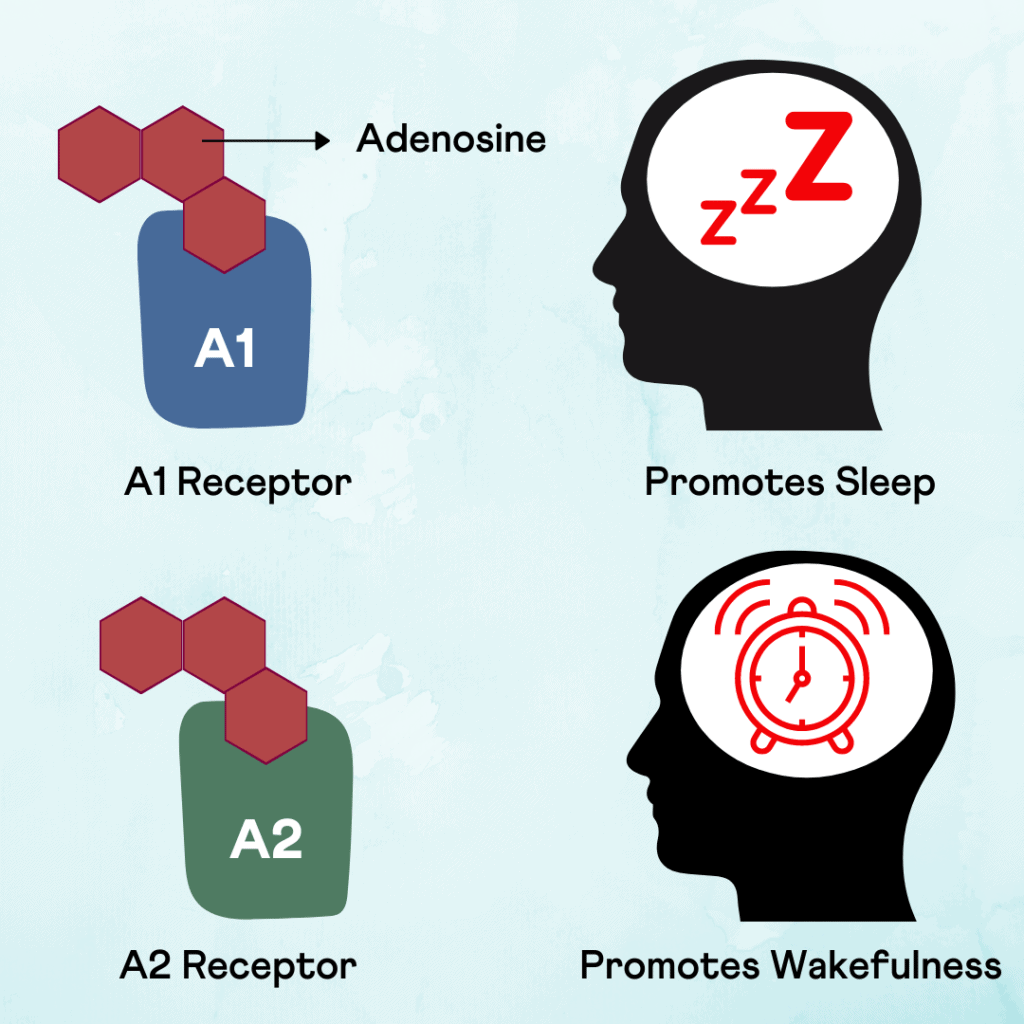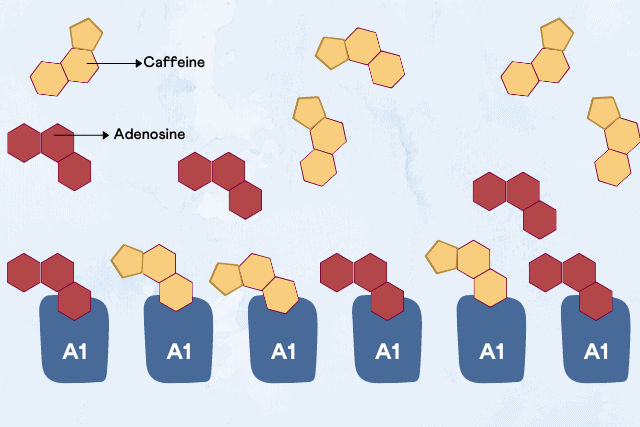The Science Of Sleep
The common ingredient in your tea, coffee, and energy drinks, caffeine, is the strongest psychoactive drug in the world. It is not a secret that caffeine helps you stay awake. But, how does it manage to do that?
Let's first look at how your brain puts you to sleep.
Adenosine triphosphate, or ATP, is the energy currency of your body. ATP is broken down into a molecule called adenosine in the brain. Adenosine moves around the neurons keeping up your energy levels throughout the day.
As the day progresses, some of these adenosine molecules exit the neurons and bind to the receptors. This causes sleepiness. There are two adenosine receptors, A1 and A2A. A1 receptors are found on neurons that keep the brain awake, and A2A receptors are found on neurons that initiate sleep.
When adenosine binds to the A1 receptor, it reduces the activity of the neurons. When it binds to the A2A receptors, it increases the activity of the receptor. The combination of this binding, along with a few other hormonal changes, makes you sleepy. When you sleep, the adenosine is slowly released from the receptors, and when there isn't enough left to bind to the receptors, you wake up from a refreshed night of sleep.
Caffeine and Sleep
Caffeine and adenosine are similar in structure. So, the caffeine can mimic the adenosine molecules and bind to the A1 and A2A receptors. However, caffeine's structure isn't identical to adenosine. As a result, it doesn't produce the "sleepy" effect.
Instead, it wards off sleepiness by preventing the adenosine molecules from binding and initiating the sleep process.
But this effect lasts for only two to four hours, depending on how fast your body can break down the caffeine. This largely depends on your genes. When your body starts getting used to the caffeine intake, it produces more adenosine receptors to counteract the effect of caffeine. You may have to end up consuming more caffeine to stay awake!
Caffeine Withdrawal
Increased caffeine consumption leads to increased production of the receptor, which again results in increased caffeine consumption. It is a pretty vicious cycle that can make you a chronic caffeine drinker! As a result, you eventually develop caffeine tolerance. When you abruptly bid farewell to caffeine, you may end up feeling way too drowsy because of the additional adenosine receptors in the brain. This is called caffeine withdrawal.
Caffeine withdrawal is characterized by other symptoms like:
- Fatigue
- Drowsiness
- Irritability
- Inability to concentrate.
They can last up to a week till the number of receptors goes back to normal. Caffeine isn't as addicting or life-threatening compared to drugs like cocaine. People tend to have a mild physical dependence on this drug. People cannot overdose on caffeine easily. An average adult would have to have about 100 cups of coffee, which amounts to 10 grams of caffeine, to experience any lethal effects of caffeine.
The adenosine receptors are also found in the heart and kidneys. Activation of the receptors decreases the activity of these organs as well. Reduced urine output and heart rate prepare the body for a good night's sleep. However, when caffeine goes and binds instead, it results in increased heart rate and urine production. This is manifested as caffeine jitters and dehydration.
Caffeine isn't very dangerous; however, children should avoid it. Scientists haven't understood the effect of caffeine on a developing brain yet. It is also unhealthy for an adult to be consuming too much caffeine. Sleep and rest are essential for healthy brain function and well-being.
Getting a Genetic Test
The genes that metabolize caffeine can say a lot about how much caffeine is "healthy" for you. A genetic test can help identify your caffeine metabolizing status.
Xcode Life's Gene Sleep report profiles genes that influence sleep upon caffeine consumption. All you need is your genetic ancestry test raw data to get started!






